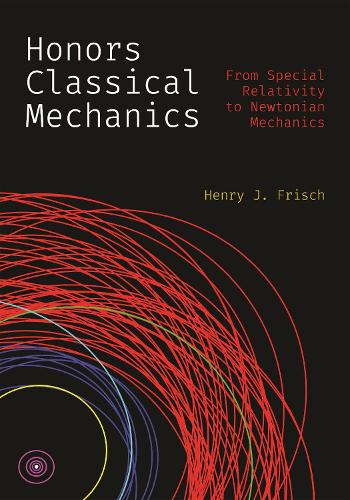
Honors Classical Mechanics: From Special Relativity to Newtonian Mechanics
(Paperback)
Available Formats
Publishing Details
Honors Classical Mechanics: From Special Relativity to Newtonian Mechanics
By (Author) Henry J. Frisch
Princeton University Press
Princeton University Press
4th March 2026
United States
Classifications
Tertiary Education
Non Fiction
Quantum physics (quantum mechanics and quantum field theory)
Relativity physics
Physical Properties
Paperback
208
Width 178mm, Height 254mm
Description
A modern introduction to classical mechanics that allows students to develop confidence, a broad mathematical tool kit, and a correct physical intuition while working in a collaborative and supportive environment
Undergraduate physics students must often "unlearn" aspects of classical mechanics as they progress through college and graduate school. This book, by introducing classical mechanics as the limiting case in special relativity of an infinite speed of light, eliminates the need for such backtracking. Starting with time/space, and energy/momentum, the book allows students to solve problems addressing modern topics of research in astronomy, cosmology, and particle physics. The text then derives Newtonian mechanics, and covers the full syllabus of a conventional introductory course, but at a deeper level of mathematical sophistication for topics such as rigid body and planetary motion. Extensive mathematical appendixes are integrated into the text, as are curated problems sets in each chapter.
The book is intended as a long-overdue revision of both the curriculum and pedagogy of the traditional introductory honors classical mechanics course.
- Begins with special relativity as a "leveler" that puts all students at the same starting point
- Relies on cooperative learning rather than a competitive "weed-out" mentality
- Emphasizes developing mathematical tools as a precise and powerful language in the context of developing a correct intuition and better understanding of physical phenomena
- Enables a more rapid path through the conventional undergraduate physics curriculum, preparing students for advanced courses in science and engineering
Author Bio
Henry J. Frisch is a professor of physics at the University of Chicago. He is the recipient of a College Quantrell Prize for Excellence in Teaching and the University Provost's Teaching Award.
